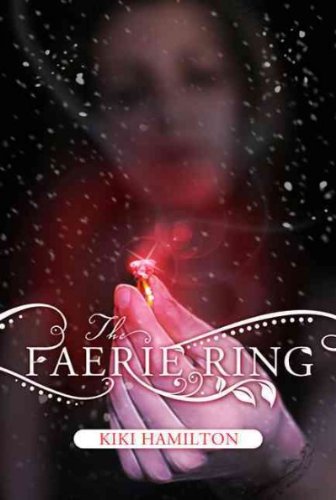The Faerie Ring
Tiki and her family of orphans live in a hideaway adjoining Charing Cross Station in central London in 1871, picking pockets to survive. One night, Tiki steals a ring from Buckingham Palace which holds a truce between the Faeries and mortals. Its loss risks an all-out war with the Fey. Tiki is being watched by Rieker, a fellow thief who suspects her involvement in the disappearance of the ring. The queen’s son, Prince Leopold, will do anything to get the ring back. Rieker has secrets of his own, and Tiki must decide whom she can trust if she’s going to provide a home for her family of thieves.
Hamilton does a lovely job of placing Tiki in Victorian London. The details are terrific and not overwhelming. The story feels like a slow-moving fairy tale, much like Tam Lin, a fairy tale that Tiki often references. I wish the family of thieves and the royal family had been more developed; they have little to do except act as spurs for Tiki’s decisions. The fairies were fascinating but needed more substance. There’s a lot of action that goes in circles, which I found frustrating. Since there will be three more books to come, Hamilton will have opportunity to develop the story. As it stands, Tiki is an appealing character with a mind of her own who should appeal to young teens. Magic seems at home in Victorian London.
–Michaela MacColl
This book was a mixed bag for me. It was very well-written. The descriptions were clear and expressive, and the characters were well defined. But nothing seemed to happen throughout the story. The ring itself kept the plot moving, but that was all it did. I hoped for fun political intrigue, but instead got thievery and subterfuge. I wouldn’t mind it that much, except for the fact there wasn’t much thievery. Almost every thief-like thing Tiki did fell apart rather quickly. And, for a story that was supposed to feature fairies, there weren’t too many of those either, and they didn’t really have any personality. Otherwise, I felt this story was like an expanded fairytale, fun to read but predictable.
–Rowan MacColl (age 15)










